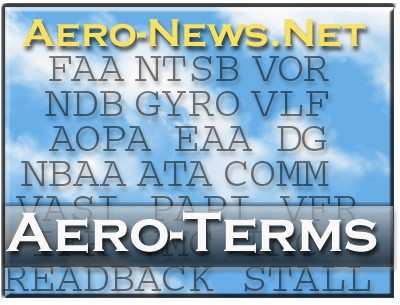Tue, Sep 13, 2022
Advertisement
More News
 ANN's Daily Aero-Term (12.13.25): Light Gun
ANN's Daily Aero-Term (12.13.25): Light Gun
Light Gun A handheld directional light signaling device which emits a brilliant narrow beam of white, green, or red light as selected by the tower controller. The color and type of>[...]
 Aero-News: Quote of the Day (12.13.25)
Aero-News: Quote of the Day (12.13.25)
“We have performed extensive ground testing by comparing warm up times, full power tethered pulls, and overall temperatures in 100 degree environments against other aircraft >[...]
 NTSB Final Report: Gippsland GA-8
NTSB Final Report: Gippsland GA-8
While Taxiing To Parking The Right Landing Gear Leg Collapsed, Resulting In Substantial Damage Analysis: The pilot made a normal approach with full flaps and landed on the runway. >[...]
 Classic Aero-TV: Historically Unique -- Marlin Horst's Exquisite Fairchild 71
Classic Aero-TV: Historically Unique -- Marlin Horst's Exquisite Fairchild 71
From 2014 (YouTube Edition): Exotic Rebuild Reveals Aerial Work Of Art During EAA AirVenture 2014, ANN's Michael Maya Charles took the time to get a history lesson about a great ai>[...]
 Airborne 12.12.25: Global 8000, Korea Pilot Honors, AV-30 Update
Airborne 12.12.25: Global 8000, Korea Pilot Honors, AV-30 Update
Also: Project Talon, McFarlane Acquisition, Sky-Tec Service, JPL Earth Helo Tests Bombardier has earned a round of applause from the business aviation community, celebrating the fo>[...]
blog comments powered by Disqus




